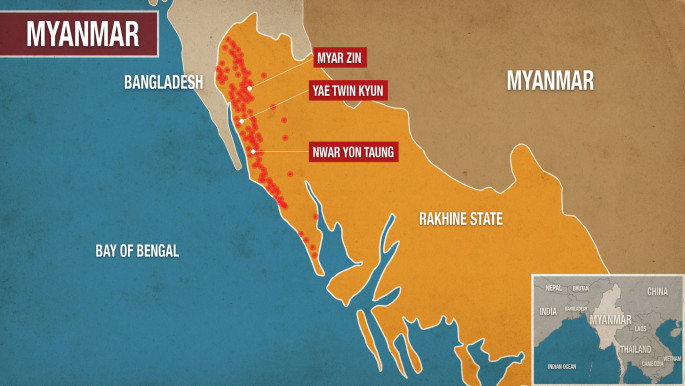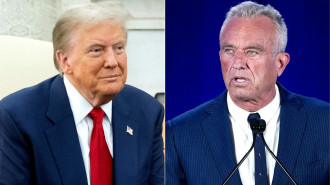Pope Francis meets Myanmar's leader Aung Suu Kyi for keenly-awaited talks
The pair met at the presidential palace in Myanmar's capital Naypyidaw for 45 minutes of scheduled talks, likely to focus on the plight of the 620,000 Rohingya who have fled an army crackdown in Myanmar to Bangladesh.
Suu Kyi, a Nobel Peace Prize winner, has been ostracised by a global rights community that once adored her but is now outraged at her tepid reaction to the plight of the Rohingya.
After talks in the capital Naypyidaw, the pontiff will address Suu Kyi and diplomats there – his first opportunity to speak publicly about the conflict that looms over his trip.
The 80-year-old pontiff late Monday received a "courtesy visit" from the powerful army chief Min Aung Hlaing, whose troops waged a campaign of ethnic cleansing against the Rohingya from Rakhine state.
General Min Aung Hlaing has firmly denied allegations of widespread brutality by his forces, despite the flight to Bangladesh since late August of 620,000 Rohingya who have recounted widespread cases of rape, murder and arson.
His office said he told the pope there was "no discrimination" in Myanmar, and praised his military for maintaining "the peace and stability of the country".
Twitter Post
|
The pope has repeatedly spoken out from afar about the crisis, standing up for what he has called his Rohingya "brothers and sisters".
A similar approach in Myanmar is fraught with danger – using the term "Rohingya" is unacceptable in a mainly Buddhist country where the Muslim minority are denied citizenship and branded illegal "Bengali" immigrants.
The country is listening closely to see if Francis will use the word "Rohingya" on Myanmar soil, and risk provoking the outrage of Buddhist nationalists.
Early Tuesday, day two of his four-day visit, the pontiff met leaders from Buddhist, Muslim, Baptist and Jewish faiths in Yangon.
The conversation centred around themes of unity in diversity, with the pope sharing a prayer and giving a "very, very beautiful speech", according to Sammy Samuels, a representative from the small Jewish community.
Francis flies up to Naypyidaw on Tuesday afternoon to meet Aung San Suu Kyi.
The Lady, as she is fondly known in Myanmar, finally came to power after elections in 2015 but has fallen from grace internationally for not doing more to stand up to the army in defence of the Rohingya – whose name she will not publicly utter.
Late on Monday the Myanmar leader was stripped of the honorific freedom of Oxford, the British city where she studied and raised her children, over her "inaction" in the Rohingya crisis.
"When Aung San Suu Kyi was given the Freedom of the City in 1997 it was because she reflected Oxford's values of tolerance and internationalism," the city council said.
"Today we have taken the unprecedented step of stripping her of the city's highest honour because of her inaction in the face of the oppression of the minority Rohingya population".
"Our reputation is tarnished by honouring those who turn a blind eye to violence."
 |
|
| Over 214 Rohingya villages have been destroyed by Myanmar's military in Rakhine State |






 Follow the Middle East's top stories in English at The New Arab on Google News
Follow the Middle East's top stories in English at The New Arab on Google News
![The new film casts Israeli actors to tell the story of Mary while leaving out Palestinians [Getty]](/sites/default/files/styles/image_330x185/public/2024-11/GettyImages-2172155541.jpg?h=199d8c1f&itok=wJWyXDEQ)
![Ben & Jerry's has taken Unilever to court for its alleged attempts to silence it [Getty]](/sites/default/files/styles/image_330x185/public/2024-11/GettyImages-2183900214.jpg?h=199d8c1f&itok=jEcYtQ64)
